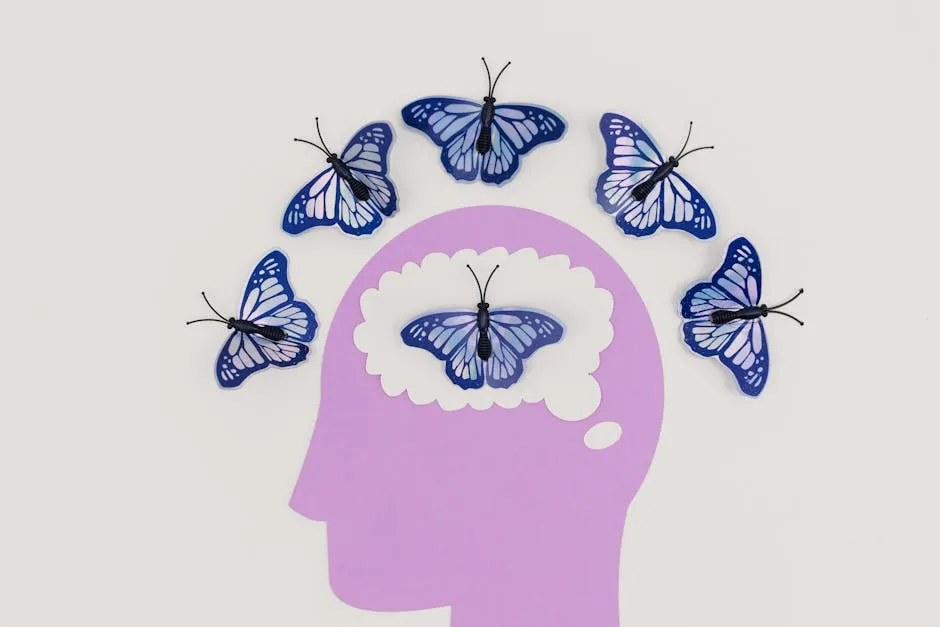
Why Do We Yawn? Unpacking the Mystery of This Common Reflex
Introduction
Yawning—it’s that universal reflex that strikes us in the most mundane of moments, often accompanied by that oh-so-familiar sleepy feeling. But why do we yawn? Is it merely a sign of boredom or fatigue, or is there something more profound at play? This seemingly simple act has puzzled scientists and casual observers alike for centuries.
When you think about it, yawning is a bit like a strange performance art piece that everyone participates in. It begins with the mouth stretching wide, followed by a deep inhalation, and wraps up with a slow exhale. You might notice yourself yawning during a long meeting or while scrolling through your social media feed. But don’t let the simplicity fool you; there’s a lot more happening beneath the surface.
This article will explore the science behind yawning, its potential functions, and the intriguing social dynamics tied to this reflex. Research suggests that yawning may play a role in brain cooling, alertness enhancement, and social communication. Yes, you read that right! Yawning might just be a way for our brains to cool down or signal our feelings to others.
So, buckle up as we uncover the layers of this baffling phenomenon. By the end, you’ll be armed with knowledge about why we yawn and what it reveals about our biology and behavior. Spoiler alert: it’s not just because you’re bored in a meeting! Let’s dive into the fascinating world of yawning and find out what makes this common reflex so captivating. Prepare to be amazed by what this simple act can tell us about ourselves and our connections with others!

Understanding Yawning
What is Yawning?
Yawning is that involuntary reflex we all know too well. You open your mouth wide, take a deep breath, and then exhale slowly. This process typically lasts about four to seven seconds. Fun fact: yawning begins in the womb at around 11 weeks of gestation! Yes, even tiny fetuses know how to yawn. Talk about early signs of life!
The physiological process involves several steps. First, you inhale deeply through your nose and mouth. Next comes the stretching of facial and throat muscles, which often feels oh-so-satisfying. Finally, you exhale, releasing that built-up tension. It’s like a mini workout for your mouth!
Types of Yawning
There are two primary types of yawning.
Spontaneous Yawning: This occurs without any apparent external stimuli. You might just find yourself yawning during a boring lecture or while binge-watching your favorite TV show.
Contagious Yawning: This type is triggered when you see, hear, or even think about someone else yawning. You know how it goes—one person yawns, and suddenly, the whole room is in a yawning frenzy. It’s like an unintentional group activity!

Theories Behind Yawning
Brain Cooling Theory
One of the most intriguing theories suggests that yawning helps regulate brain temperature. When you yawn, you open your mouth wide and take in cooler air. This influx of cool air, combined with increased blood flow, may help cool the brain down. Studies back this up, showing decreased yawning in cooler environments. So, if you find yourself yawning during a heatwave, it could be your brain’s way of asking for a cool breeze!
To really optimize your brain function, consider reading Sleep Smarter by Shawn Stevenson. This book provides essential strategies to improve your sleep quality, which in turn can enhance your cognitive functions, making your brain cooler and sharper!

Arousal Hypothesis
Another popular theory is the arousal hypothesis. It posits that yawning increases alertness and prepares the brain for activity. When you yawn, your heart rate increases, and blood flows more effectively. This surge in blood flow can help wake up your brain, making you ready to tackle whatever lies ahead. So, the next time you yawn before a big meeting, you’re not just tired; you’re gearing up for action!
Communication Theory
Yawning also has a social aspect. This theory posits that yawning serves as a form of non-verbal communication. When we yawn, we might be signaling to those around us that we’re tired or bored. Interestingly, research suggests that contagious yawning might be linked to empathy. People who feel closer to each other are more likely to yawn in response to one another. It’s like a social bonding ritual, just without the awkward small talk!
Other Theories
There are a few outdated theories floating around, like the idea that yawning increases oxygen intake. However, modern research has largely debunked this. Another theory suggests that yawning helps relieve pressure in the eustachian tubes, which connect the throat to the middle ear. This can be particularly useful during altitude changes, like when you’re on an airplane.
In conclusion, yawning is far more complex than we often give it credit for. Whether it’s about cooling down the brain, waking ourselves up, or even connecting with others, this simple reflex reveals fascinating insights into our biology and social behavior. So next time you catch yourself yawning, remember, it’s not just a sign of boredom; it’s a multi-faceted reflex with a lot going on!

Triggers of Yawning
Common Triggers
Yawning is often linked to fatigue. You know that feeling—your eyelids start to droop, and suddenly, you’re yawning like it’s a competitive sport. Boredom is another culprit. During dull lectures or lengthy meetings, your brain seems to scream for stimulation. Waking up can trigger yawns, too. After all, who doesn’t love a good yawn to shake off sleepiness?
Environmental factors also play a role. Changes in temperature can prompt yawning. Imagine stepping into a warm room after being outside in the brisk air. Your body might respond by yawning, almost as if it’s trying to adjust to the new environment. Similarly, altitude changes can lead to yawning, likely due to pressure differences in your ears. So, if you find yourself yawning on a plane, it’s not just boredom; it’s your body’s way of equalizing pressure. Interestingly, these environmental factors can also influence sleep disorders like bruxism.

To combat yawning due to stress or anxiety, consider trying an Aromatherapy Diffuser. It can help create a calming atmosphere, reducing stress and promoting a sense of relaxation, which can diminish those pesky yawns!
Social Triggers
Now, let’s talk about contagious yawning. You’ve seen it happen. One person yawns, and suddenly, the whole room looks like a synchronized swimming team of yawners. This phenomenon isn’t just a quirky human trait. It suggests a deeper connection—empathy. Research shows that people are more likely to yawn in response to someone close to them. So, when your friend yawns, it’s not merely a reflex; it’s a social cue, a way of bonding.
This empathetic response might have roots in our evolutionary history. Yawning could have served as a non-verbal communication tool in social groups, indicating tiredness or alertness. It’s fascinating how a simple act can reveal our social instincts!

Psychological Factors
Stress can also trigger yawning. When you’re anxious, your body reacts in various ways, including increased yawning. It’s as if your body is trying to cope with the overload of emotions. Similarly, yawning can occur during moments of anxiety. The act may serve as a momentary escape, allowing your mind to reset.
Interestingly, some studies suggest yawning can help regulate emotional states. When faced with stress, yawning might actually promote relaxation. So, the next time you yawn in a tense situation, remember—it might just be your body’s way of finding calm amidst the chaos.

Excessive Yawning: When to Be Concerned
Defining Excessive Yawning
Excessive yawning isn’t just about feeling sleepy. But how much yawning is considered excessive? Generally, if you find yourself yawning more than three times in a brief period without a clear reason, it might be time to take note. The average person yawns about nine times a day, but some studies suggest it can go up to twenty, especially when waking up or winding down. If your yawning seems out of the ordinary, it’s worth paying attention to.

Potential Health Concerns
Excessive yawning can be linked to various health concerns. Sleep disorders like sleep apnea and narcolepsy often lead to increased yawning. Neurological issues can also be at play, including conditions like multiple sclerosis or epilepsy. The vagus nerve, which runs from the brain to the abdomen, plays a role in this yawning phenomenon. If yawning becomes frequent and bothersome, consulting a healthcare provider is essential. They can help determine if there’s an underlying issue that needs addressing. Furthermore, understanding how environmental factors contribute to these conditions can provide additional insights.
If you’re looking for ways to improve your sleep and reduce excessive yawning, consider exploring Why We Sleep by Matthew Walker. This book unlocks the power of sleep and dreams, providing insights that can help reduce excessive yawning and improve your overall health.

In conclusion, while yawning is a common reflex, understanding its triggers and implications can provide valuable insights into our physical and emotional states. So, the next time you let out a big yawn, take a moment to consider what might be happening beneath the surface!

Yawning in Animals
Yawning Across Species
Yawning isn’t just a human quirk; it’s a behavior seen across many species! From mammals to birds and reptiles, yawning is a common reflex that serves various purposes. In mammals, such as dogs and cats, yawning can indicate boredom or a need to stretch. Birds often yawn before rest, and even fish have been observed yawning, albeit in a less pronounced manner.
Interestingly, some animals exhibit contagious yawning. This phenomenon is particularly noted in social species like chimpanzees and dogs. When one member of the group yawns, others often follow suit. It’s believed that this reflects a social bond and empathy among individuals. Chimpanzees, our closest relatives, show a high propensity for contagious yawning, suggesting it could serve as a way to synchronize group behavior and maintain social harmony. Meanwhile, dogs tend to yawn in response to their human companions, highlighting their strong social connection with us.

Evolutionary Perspective
From an evolutionary standpoint, yawning may provide advantages for social species. In social animals, yawning can act as a signal, conveying states of alertness or fatigue to group members. This shared understanding can help groups coordinate activities, such as hunting or resting.
Furthermore, yawning can strengthen social bonds. When social animals yawn together, it fosters a sense of unity and connection. This behavior may enhance group cohesion, ensuring that members remain aware of each other’s states. For species that thrive on social interaction, such as humans and primates, yawning serves as more than just a reflex; it’s a vital part of their social toolkit. So, the next time you catch your dog yawning after a long day, remember—it’s not just tired; it’s part of their social language!

FAQs
Is yawning a sign of being bored or tired?
Yawning is often linked to boredom or tiredness. When we’re bored, our attention wanes, leading to a drop in alertness. In response, our body prompts a yawn, signaling that it’s time to refresh. However, yawning can also occur due to other triggers. Maybe it’s a change in temperature or even a reaction to seeing someone else yawn. So, while it’s commonly associated with fatigue, yawning can pop up in various situations.
Why is yawning contagious?
Ah, the mystery of contagious yawning! Have you ever yawned just because someone nearby did? This phenomenon is believed to be tied to empathy. When we see someone yawn, our brain reacts, almost as if we’re mirroring their feelings. It’s like a social bonding ritual! Research shows that people who share closer emotional connections are more likely to catch a yawn from each other. So, the next time you yawn in a meeting, remember—it’s not just you; it’s your brain connecting with others!
Can excessive yawning indicate a health problem?
Excessive yawning can raise eyebrows. If you find yourself yawning more than usual, it might be a sign to pay attention. This behavior can sometimes indicate underlying health issues, such as sleep disorders or even neurological conditions. If your yawning reaches the point where it disrupts your daily activities or is accompanied by other concerning symptoms, it’s wise to consult a healthcare professional. After all, your body might be trying to tell you something important!
Do animals yawn?
Absolutely! Yawning isn’t just a human trait; it spans many species. From dogs to chimpanzees, animals yawn too. Interestingly, many of them also display contagious yawning. It seems that social creatures, like dogs and primates, use yawning as a form of communication and connection. This behavior can indicate alertness or social bonding within their groups. So, the next time you see your dog yawn, know it might be more than just boredom!
What can I do to reduce excessive yawning?
If you’re yawning more than you’d like, consider making a few lifestyle changes. Staying hydrated, getting enough sleep, and managing stress can help. Regular physical activity also boosts alertness and reduces fatigue. If excessive yawning persists despite these changes, it might be time to consult a healthcare professional. They can help identify any underlying issues and provide tailored advice to address your concerns. Remember, it’s always better to be safe than sorry!

If you’re looking for a relaxing way to wind down and maybe prevent some of that excessive yawning, try out a Weighted Blanket. These blankets provide a comforting hug that can help reduce anxiety and improve your sleep quality, leading to fewer yawns!
Please let us know what you think about our content by leaving a comment down below!
Thank you for reading till here 🙂
All images from Pexels




